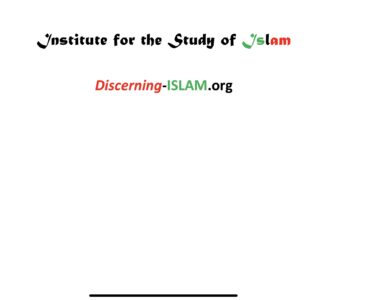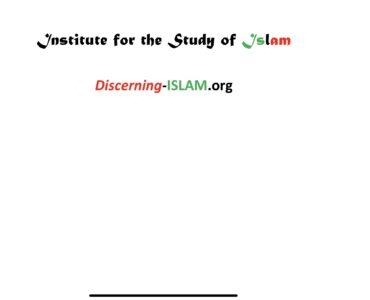INTRODUCTION
These concepts were first presented in part at a missions conference at First Presbyterian Church (later changed to Christ Presbyterian/PCA) in Nashville. Tennessee, in 1978. Since that time they have literally been used around the world as discipleship tools with dozens of businesses and have been translated into Spanish, French, Georgian, and Russian.
Values In The Marketplace offers guidelines from God’s Word for operating a business based on practical biblical principles. In business a Christian’s first objective should be to do things God’s way. It is my thesis that God’s principles can be applied to any business situation. The basic decision one must make is to apply God’s value system and not the world’s.
Too often the Christian assumes there is no alternative to doing business “the world’s way.” But Christians march to a different drummer. The children of Israel forgot their uniqueness as the people of God. They “mingled in among the heathen and learned their evil ways” (Psalm 106:35, TLB). But how can someone in business be “in the world, yet not of it?”
We must begin with the fact of sin. Sin is the abuse of something that is right; the misuse of something that is holy; the non-use of God’s resources. All sin can be traced back to the abuse or perversion of God’s holy ordinances. Too often we alter God’s admonitions to suit our own selfish purposes, and that is sin.
God created the physical universe and all that is in it, which He then pronounced “very good.” Our bodies are a part of this material universe and our sustenance even depends on it. God gave mankind dominion over the universe, with instructions to subdue the earth and take care of it. Thus, this incredible universe is God‘s provision and as such is not evil or inferior.
Money too is included in the goodness of creation. It is a medium of exchange, and it represents the value of material things. All this God provided for our good, for our benefit and enjoyment. Temptation does not stem from God‘s creation, but from within our hearts. Money (and the material goods it represents) is not evil in itself, or even morally neutral; it is good. It is Satan who, through temptation, distorts our perception and behavior by greed, causing us to view material things as evil.
We have a tendency to divide life into compartments of secular and sacred. This is counterproductive. There is a sense in which all of life is sacred, which means our businesses are sacred as well. I believe it’s time we begin to operate them as such, remembering that our purpose is to serve God and display His character as we do so.
Christians do not see circumstances as happenstances. Events in the Christian’s life are part of a God-ordered or at least God-permitted plan and should be accepted as such. They should not think of their lives as altogether secular or sacred. The secular and sacred are inseparable components of the Christian‘s earthly life. In fact, Christians may even demonstrate what appears to be a reckless abandon as they allow God to direct their activity in an outwardly secular situation.
A Christian‘s initiative is not to be directed toward self-seeking goals, but toward knowing 33and serving Jesus Christ. For them everything should be seen in terms of gaining a more intimate knowledge of Him. Moreover, the Holy Spirit enables the Christian to integrate Christ in every area of life, always keeping this goal in focus. It‘s much like going to school. Sometimes it is necessary to take the same course over and over again to get it right — to understand the subject. So, whether we eat or drink (or wash disciple’s’ feet) — or whatever it may be — we are to take the initiative of bringing Jesus Christ into every facet of our lives. “So whether you eat or drink or whatever you do, do it all for the glory of God,” (I Cor. 10:31). Our Lord realized His relationship to the Father even in the most menial activity, and He is our example.
The aim of Christians is “to know Him.“ If we do not want to fail Him, our purpose should not be to please ourselves, but to know Christ. To “know Him” is an intimate awareness, a total live-in relationship. Do you know Him where you are today? Do you know Him in the work place?
In terms of the world’s value system, God’s Word contains some very difficult principles. It will undoubtedly cost somebody thing to follow them, but there are benefits for having paid the price. The question is, “Who are we to follow—the world, or God?”
Has Christ spoken a hard word to you personally? If not, I question whether you have listened very carefully. Jesus Christ says much that we do not really hear. However, when we do hear Him, we find His words can be amazingly hard.
“ Sell all you have …” In this situation Jesus did not appear to be overly concerned with this man‘s decision; that is, He made no attempt to force the issue. He simply said, “Sell all you have, and come. follow Me.” Our Lord never pleaded, He never cajoled, He never entrapped; He simply spoke what were some of the sternest words mortal ears ever listened to, and then dropped the matter.
Has Christ said a hard word to you? Has He said something to you personally which you deliberately ignored? It probably did not call for a debate or negotiation; you just heard Him tell you something. The young man had understood what Christ said. He heard it. He sized up what it meant — and the meaning obviously broke his heart. He did not go away defiant; he was saddened, apparently thoroughly discouraged. He had come to Christ eagerly, but Jesus’ words simply froze him. Instead of increasing his enthusiasm, it produced heartbreaking discouragement. Yet Christ did not go after him; He allowed him to leave. Our Lord seems to know that once He has our attention, His Word will bear fruit, sooner or later. The sad thing is that some of us will not give Him our attention and prevent its bearing fruit in our lives. Remember: He will never force us to do anything.
The rich young ruler went away silently and sorrowfully; he apparently said nothing. But we know Jesus’ words produced deep sorrow in his silence. Have you ever been there? Has God’s word come to you, maybe about something you are very rich in? Have you been silently sorrowful? Christ will not badger you, but He may continue speaking … “If you mean what you say, those are the conditions.”
“Sell all you have” … i.e., undress yourself morally before God, letting go of everything you might consider a possession. Consciously humble yourself before Him. Give Him your full attention. Give yourself and your will over fully to Him. That is where the real battle is fought — in the domain of one’s will.
In presenting these business principles, I have sought to cover a number of topics. The first deals with my personal search for wisdom, and its value for me. The second is devoted to what I have termed “biblical issues”: in other words, why I take this approach to God’s Word, and why I cannot accept positions of those who interpret that Word from a more liberal point of view. The third contains a brief outline business history in America — more particularly of how Western Capitalism evolved. The fourth explains a number of business functions based on biblical principles.
The majority of the book is dedicated to the remaining portion which deals with decisions Christians are called on to make every day in business, and what Scripture tells us about them. Also discussed in this section are “basic business
minimums“: business relationships, treating others fairly, planning, success in business, business ethics, and symptoms of financial bondage with some solutions for it.
Following this, I attempt to deal with the subject of justice in the future marketplace, as a summary. Several foundation principles are offered with an epilogue.
The final section sets up a simple reference outline of “basic business minimums.” It includes additional scriptural passages of verses from Proverbs (where my own search began), and others.
As you read these pages, it is my hope that you will find get the material not only thought-provoking but challenging. It may even be the “handle” you have been searching for as you endeavor to operate your business according to biblical principles.
(All Scripture verses are from the NIV or The Living Bible.)
NEXT: PART I: A Personal Search for Wisdom
PREVIOUS: Table Of Contents
Introduction
https://discerning-Islam.org
Last Updated: 01/2023
See COPYRIGHT information below.



